This new Lotus flagship isn’t a small, lightweight sports car; it’s an all-electric hyper GT sedan that’s quick in an all-new way.
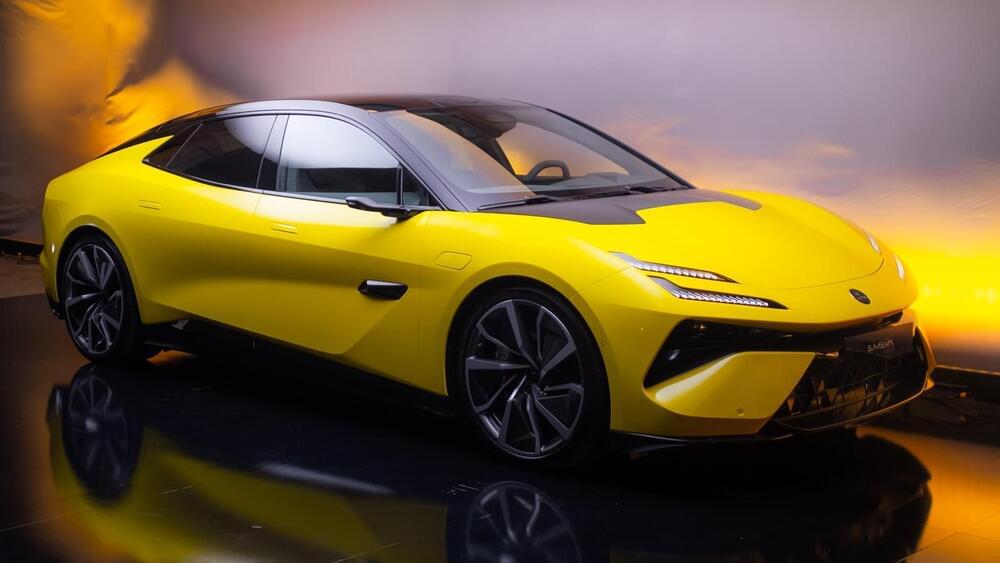

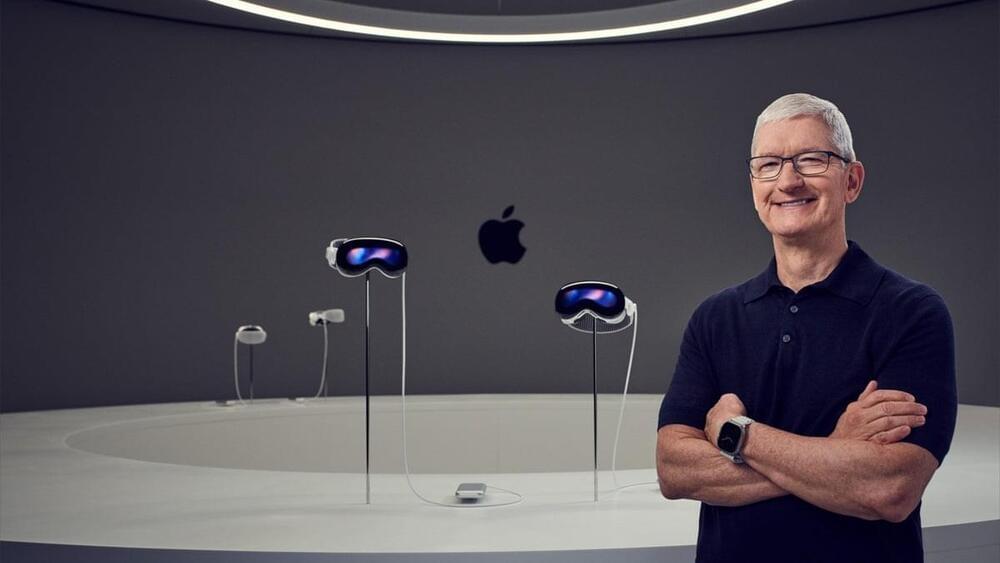

An all-electric Toyota pickup may be closer than expected. According to the company’s Thailand president, Toyota will launch an electric Hilux pickup by the end of 2025. The move comes after Japanese rival Isuzu is set to reveal its first 100% electric truck later this month.
Toyota’s Hilux is one of the top-selling pickup trucks globally, so it would make sense for an all-electric version.
The Toyota Hilux is built in six nations with sales across 180 countries and regions. Despite releasing its first “electrified” Hilux Hybrid 48V in December, it still featured a 2.8L diesel engine. The update provided a modest 5% improvement in fuel efficiency.
There’s a specter haunting the tunnels of a particle accelerator at CERN.
In the Super Proton Synchrotron, physicists have finally measured and quantified an invisible structure that can divert the course of the particles therein, and create problems for particle research.
It’s described as taking place in phase space, which can represent one or more states of a moving system. Since four states are required to represent the structure, the researchers view it as four-dimensional.

French automaker Renault is exploring a lucrative business prospect by partnering with companies to extract and recycle lithium and other metals in EV batteries, creating a circular economy that can bring in billions of dollars and reduce reliance on China.
According to Automotive News Europe, Renault aims to be the first European automaker to recycle batteries on an industrial scale.
“In Europe, there is currently… nobody who can claim to recycle used batteries in a closed-loop to reproduce nickel, cobalt and lithium to make new batteries,” said Jean-Philippe Bahuaud, CEO Renault’s environment unit, called The Future Is Neutral (TFIN), which was launched in 2022.
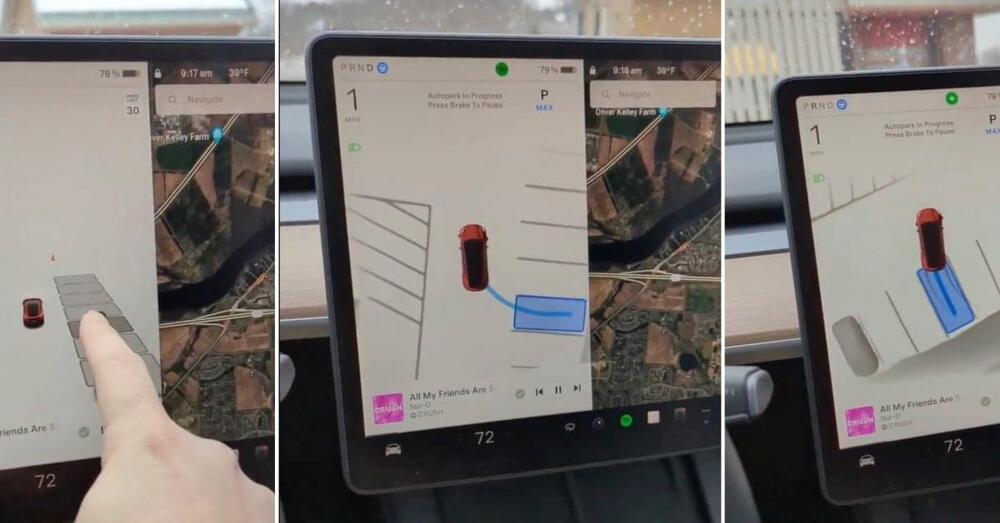
Tesla has started to release a new version of its auto parking system, an updated automated parking for its newer vision-only vehicles.
Ever since Tesla stopped using ultrasonic sensors in its new vehicles and only relied on cameras for its ADAS features, its vehicles have lacked auto-parking features.
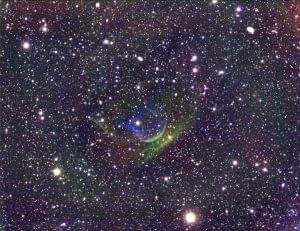
A new telescope called the “Condor Array Telescope” may open up a new world of the very-low-brightness universe for astrophysicists. Four new papers, published back to back in the Monthly Notices of the Royal Astronomical Society (MNRAS) this month, present the first scientific findings based on observations acquired by Condor. The project is a collaborative led by scientists in the Department of Physics and Astronomy at Stony Brook University and the American Museum of Natural History (AMNH).
According to lead researchers Kenneth M. Lanzetta, Ph.D., a Professor in the Department of Physics and Astronomy and Stefan Gromoll of Stony Brook, and Michael M. Shara, Ph.D., Curator in the Department of Astrophysics at the AMNH, Condor is now in full operation. The new “array telescope” uses computers to combine light from several smaller telescopes into the equivalent of one larger telescope and is able to detect and study astronomical features that are too faint to be seen with conventional telescopes.
In the first paper, Lanzetta and colleagues used Condor to study extremely faint “stellar streams” surrounding the nearby galaxy NGC 5,907, a well-known spiral galaxy located some 50 million light years from Earth.
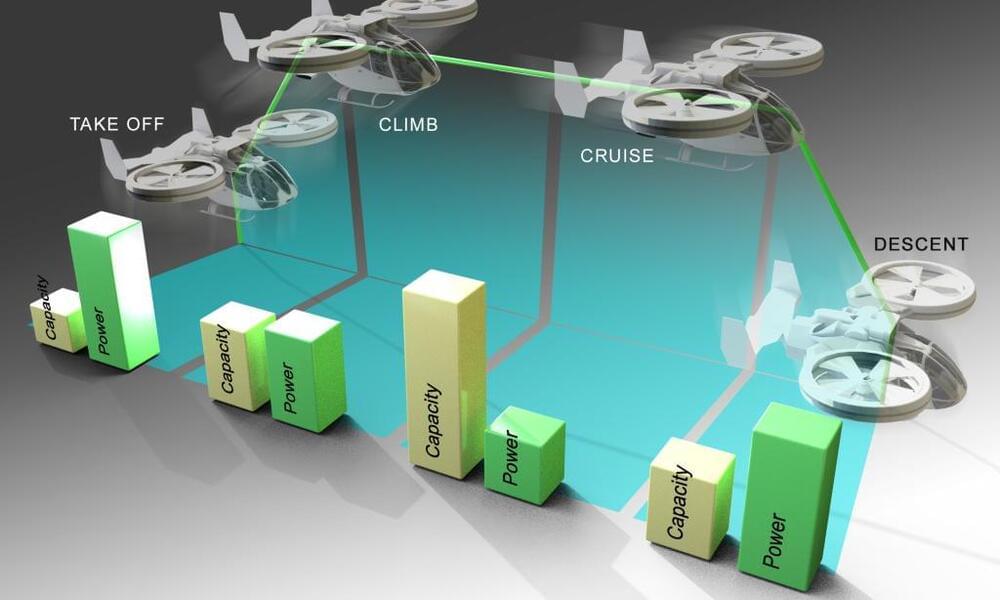
EVTOL battery analysis reveals unique operating demands. Researchers at the Department of Energy’s Oak Ridge National Laboratory are taking cleaner transportation to the skies by creating and evaluating new batteries for airborne electric vehicles that take off and land vertically.
These aircraft, commonly called eVTOLs, range from delivery drones to urban air taxis. They are designed to rise into the air like a helicopter and fly using wing-borne lift like an airplane. Compared with helicopters, eVTOLs generally use more rotors spinning at a lower speed, making them both safer and quieter.
The airborne EV’s aren’t just flying cars, and ORNL researchers conclude that eVTOL batteries can’t just be adapted from electric car batteries. So far that has been the dominant approach to the technology, which is mostly in the modeling stage. ORNL researchers took a different tack by evaluating how lithium-ion batteries fare under extremely high power draw.

Gut bacteria and a diet rich in the amino acid tryptophan can play a protective role against pathogenic E. coli, which can cause severe stomach upset, cramps, fever, intestinal bleeding and renal failure, according to a study published March 13 in Nature.
The research reveals how dietary tryptophan—an amino acid found mostly in animal products, nuts, seeds, whole grains and legumes—can be broken down by gut bacteria into small molecules called metabolites. It turns out a few of these metabolites can bind to a receptor on gut epithelial (surface) cells, triggering a pathway that ultimately reduces the production of proteins that E. coli use to attach to the gut lining where they cause infection. When E. coli fail to attach and colonize the gut, the pathogen benignly moves through and passes out of the body.
The research describes a previously unknown role in the gut for a receptor, DRD2 has otherwise been known as a dopamine (neurotransmitter) receptor in the central and peripheral nervous systems.
To check out the physics courses that I mentioned (many of which are free!) and to support this channel, go to https://brilliant.org/Sabine/ and create your Brilliant account. The first 200 will get 20% off the annual premium subscription.
In this video I explain how Bohmian mechanics, also known as the Pilot Wave Interpretation of Quantum Mechanics works, and what is good and bad about it. I also tell you a little about the history of the subject because I think it is helpful to understand the situation in which the subject is today.
You can join the chat on this week’s video on Sunday, Oct 18, at 6pm CEST:
Or on Tuesday, Oct 20, at 6pm CEST: